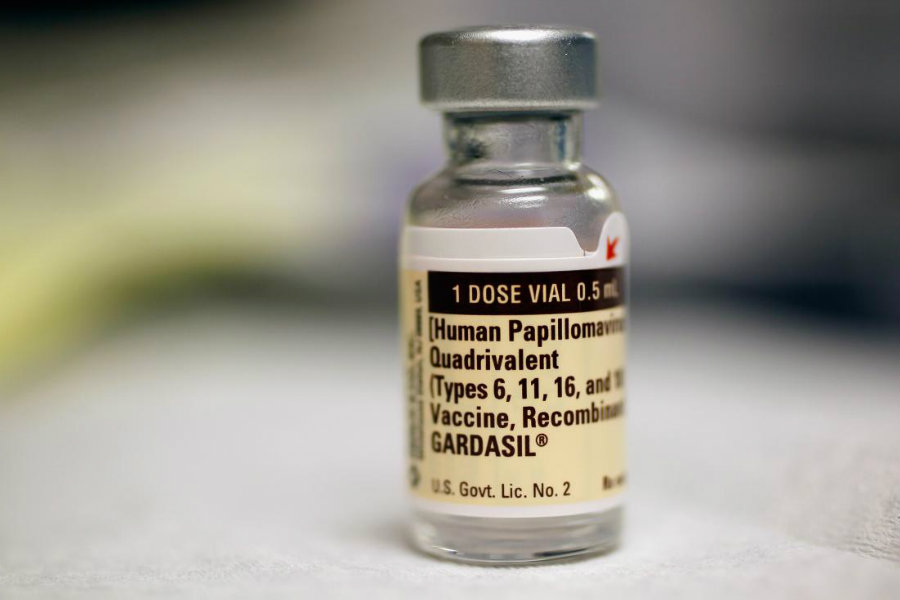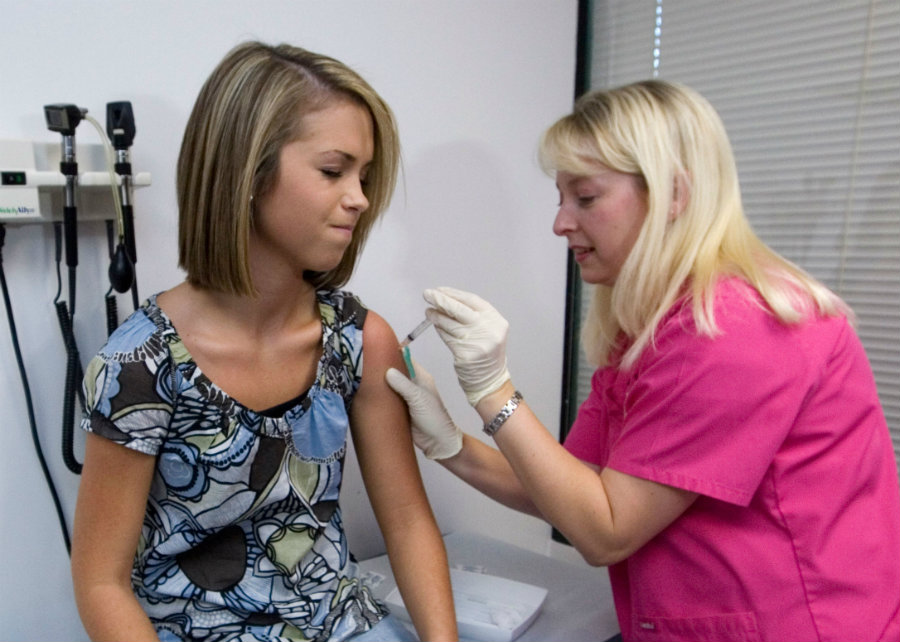A new study revealed that parents remain skeptical about HPV vaccine despite its effectiveness and medical recommendations.
The recent study published today in the journal Cancer Epidemiology, Biomarkers and Prevention showed that parents also remain worried about HPV vaccination for school admissions.

Considering that data revealed a weak support from parents about HPV vaccination as a school requirement, researchers decided to assess parents’ support for HPV vaccination in the light of numerous states considering it as a requirement for school admission.
By the use of a web-based survey completed between November 2014 and January 2015, researchers evaluated a national sample of 1,501 parents of 11 to 17-year-old teens. To assess current views on the vaccine, scientists used multivariable logistic regression to correlate parents’ support for HPV vaccination as a school-entry requirement.
It was found out that 21 percent of parents agreed that HPV vaccination for school admission as a legal obligation is a good idea. In turn, a 54 percent disagreed.
However, the results dramatically changed when an opt-out provision was offered. The agreement about laws requiring the vaccine for school increased to 57 percent, while there was still a 21 percent that disagreed.
As per the study’s lead author, Wiliam Calo of the Department of Health Policy and Management at the Gillings School of Global Public Health at the University of North Carolina, 21 percent is a lot lower than expected. The team of researchers thought there was a higher number of parents supporting the vaccine as a school requirement.
Scientists pointed out, also, that the study revealed that parents do not see the vaccine as necessary and in other cases; vaccine’s effectiveness was not well known among subjects.
“One of the most surprising findings of the study is that 60 percent of people don’t believe the vaccine is effective in preventing cervical cancer,” Calo argued.
Several states in the US have already introduced legislation on HPV vaccination. Regulations about funding, public health promoting and school admission requirement have been likewise enacted in the country.
Routine vaccination recommended by health institutions
Although the Department of Health and Human Services set a goal of 80% of HPV vaccination rate by 2020, a study conducted in 2014 revealed that there was only a 40 percent of girls and other 22 percent among boys that had received the vaccination. Health authorities attribute such low rate to wrong ways of promoting the vaccination.
ABC News reported that the executive director of the American Public Health Association, Dr. Georges Benjamin, alleges a lack of funds to promote the vaccination throughout comprehensive vaccination programs.

Since 2006, when the scientific community officially and widely recommended the vaccination, there have been various studies and tests to reaffirm the positive results the vaccination brings to teens’ health. The tests have shown major gains in protecting the health of adolescents, so much so that in 2010, the US registered a 56 percent decrease of HPV-related cases in teen girls.
Among medical experts, the HPV vaccine is considered as the first attempt to prevent cancer in the young population, and it has received all the support needed to be highly advisable in children and teens.
Health institutions, such as the American Academy of Pediatrics (AAP), the CDC, and the American College of Obstetricians and Gynecologists, among others, highly recommend routine vaccination for HPV on boys and girls.
The human papillomavirus or HPV vaccine can prevent sexually transmitted infections and different types of cancers. It has been found out that HPV is the most common cause of head and neck cancer among teenagers.
Almost 40 million teens get infected with the HPV virus in the US. The HPV cases have been found mostly in people aged between 15 and 24.
As per Consumer Reports Medical Director, Dr. Orly Avitzur, HPV infections are a common threat that can attack anybody at any moment. The consequence of the illness is what concerns the most to health experts.
Despite the effectiveness of the vaccine, Dr. Avitzur adds that parents are skeptical about the vaccination because it could encourage sexual promiscuity.
“It doesn’t discriminate by gender. HPV is the most commonly-sexually transmitted infection in both males and females. It can cause genital warts and several different cancers, including cervical and cancer of the mouth and throat. Parents question why they’re giving it to their 11-year-old, but concerns about it encouraging sexual promiscuity are unfounded. It is an important conversation for parents and doctors to have,” remarked Avitur.
Dr. Henry Bernstein, pediatrician and member of the American Academy of Pediatrics (AAP) Committee on Infectious Diseases, urged that children should receive HPV vaccinations as soon as possible. Vaccinating children at the age of 11 or 12 is the best option as opposed to waiting until individuals become sexually active. Bernstein adds that former studies have proved the vaccine is more effective at earlier stages.
Source: Cancer Epidemiology, Biomarkers & Prevention
